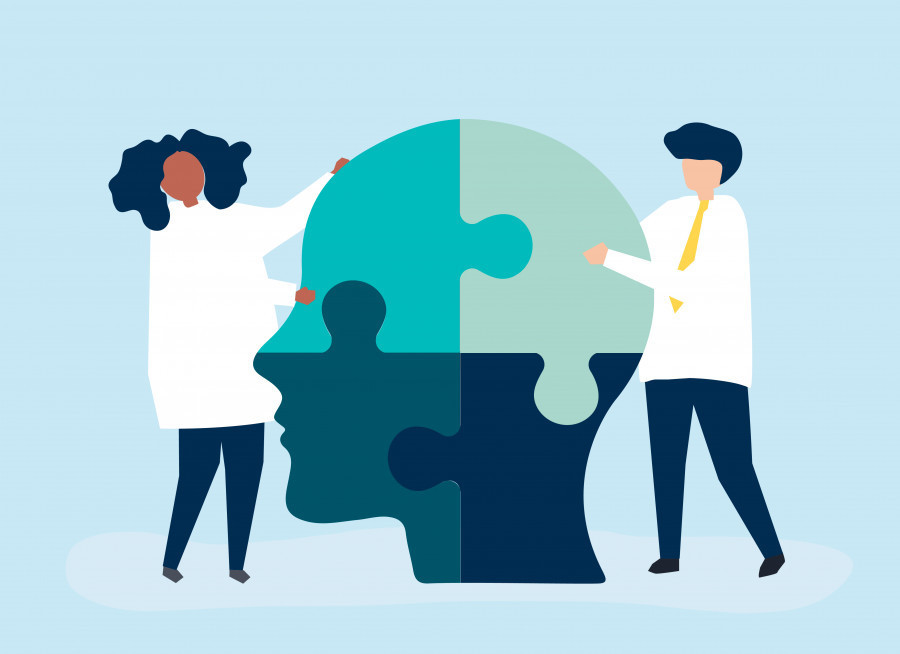Health
Despite free treatment and medications, mental health patients are deprived of care
Experts say counselling is needed not only for patients but also for family and communities.
Arjun Poudel
Some two months ago, Geeta from Barahapokhari Rural Municipality-1 of Khotang district, was brought to Nepal Mental Hospital, Lalitpur for treatment by her husband and in-laws.
However, after bringing the 29-year-old psychosis patient, whom the Post is identifying as Geeta, not her real name, her husband and in-laws left the hospital.
The patient is a mother of two.
“This is the fifth time her husband and in-laws have left her at our hospital,” Dr Basudev Karki, a consultant psychiatrist at the hospital, told the Post. “We tried a lot to contact her husband but his mobile phone is switched off.”
Doctors say psychosis is a serious mental disorder, in which patients are detached from reality. Patients may see, hear or believe things which aren't real.
And the problem is not the psychosis or any other mental health problems from which people have been suffering but the trend of abandoning the patients, after they suffer from mental health problems.
“This is neither the first case nor the last,” said Karki. “People do not abandon their dear ones if they have some other health complications, and we are not able to understand why their dear ones become a burden once they suffer from mental health disorders.”
Staffers at the hospital tried to take help from the local government and local administration to contact her husband, but to no avail. The woman remained in the hospital for about two months and after she became able to remember the phone numbers of her maternal kin, the hospital administration informed them.
“We sent the woman with her parents just two days ago (on Tuesday),” said Karki.
Experts say any person including a person having mental health disorder needs love and care from family members and it is more important when they are ailing. Family members and relatives are the first ones who get noticed about the problems. Early diagnosis and proper treatment on time makes a difference in the early recovery.
“Had her husband and other relatives accompanied her to the hospital, she could have recovered early or have positive feelings that her own people are with her in the time of difficulty,” Dr Kapil Dev Upadhyay, a mental health expert, told the Post.
According to Upadhyay, who was also a former director of the Nepal Mental Hospital, the said case is a common refrain, which has continued for over the years.
“A few years ago, a teacher from Dolakha had brought his wife, who is also a teacher in our hospital (Nepal Mental Hospital),” said Upadhyay. “The man left his wife in our hospital and never returned. The problem cuts across both uneducated and educated groups.”
The government provides free treatment and free medications to the patients suffering from mental health problems. If a doctor certifies that someone cannot work due to their mental health problems, the government also provides them Rs 3,000 as monthly allowance.
However, very few people are aware of the scheme. And what is concerning, doctors say is, when someone suffers from mental health problems, they become a burden to family members and society.
“We have seen that the entire family members are deeply affected when a member of the family suffers from mental illness,”said Upadhyay. “Some family members wish the patient to die instead of suffering from mental health problems. And it is a responsibility of the authorities concerned and all stakeholders to launch awareness drives and counselling.”
Patients suffering from mental health disorders need counselling on the need for adhering to regular medications and in most cases they can become normal after treatment. However, the kin of the patients, relatives and members of their communities need more counselling than the patients, according to psychiatrists.
“We need to change the stigma deep-rooted in every society, we need to convince the people that mental health problems are like any other health problems,” Dr Phadindra Prasad Baral, chief of the mental health section at the Epidemiology and Disease Control Division, told the Post. “We have to convince the people that like other body parts, the brain is an important organ and having problems in the mind is normal and anyone can suffer from mental health problems.”
Just because a person has mental health problems doesn’t mean they are or can turn demented, according to doctors. Hence counselling is needed for the affected family members and communities to make them aware about mental health issues.
However, there is no counselor or clinical psychologist serving under the Ministry of Health and Population.
“We do not have any dedicated counsellor or clinical psychologist,” said Baral. “We know that counselors and clinical psychologists are needed in state-run health facilities. Lets hope, the government will create such positions in the coming days.”
Doctors say that mental health problems have risen following the start of the coronavirus pandemic. Due to prolonged restrictions, a lot of mental health patients are deprived of medicines. Some could not even visit their doctors and counsellors.
Baral claimed that the issues regarding the supply of medicines have been addressed of late but concedes that a lot of patients could have discontinued their medications during the lockdown period.
“Due to the prolonged pandemic, a lot of people are struggling to make their ends meet,” said Karki, consultant psychiatrist at the Nepal Mental Hospital. “A lot of people also might have undergone various kinds of mental health problems due to the effects of the pandemic and we can only guess what might have happened to those who are already suffering from mental health problems.”




 22.93°C Kathmandu
22.93°C Kathmandu















